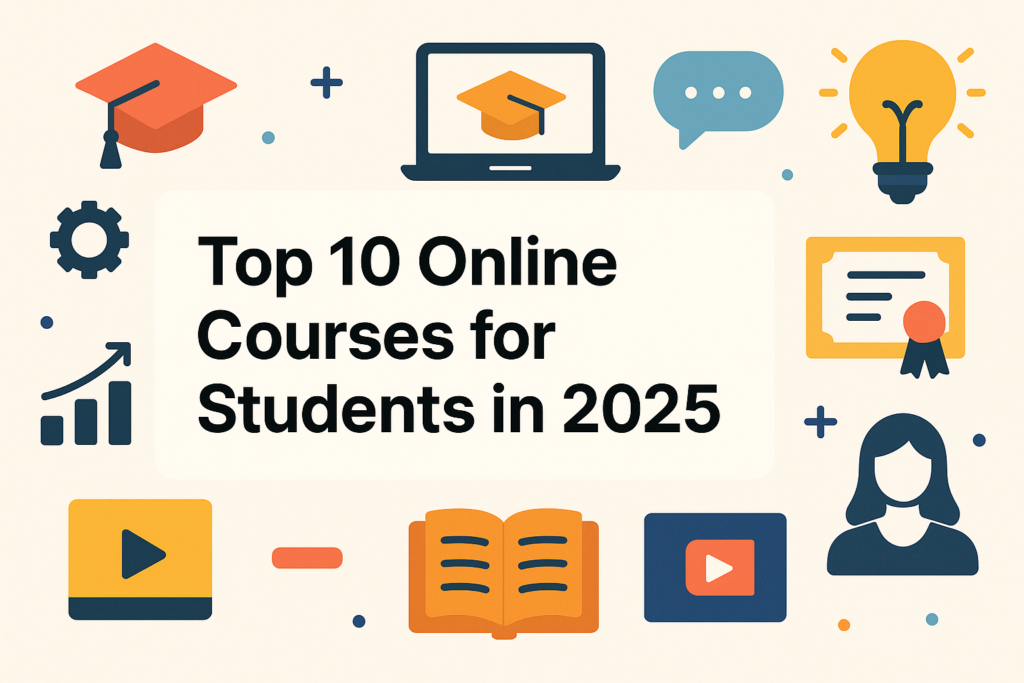The Rise of E-Learning in 2025
If there’s one trend that has completely transformed the world of education in the last decade, it’s the unstoppable rise of online learning. In 2025, e-learning is no longer just a convenient alternative to traditional classrooms—it’s the preferred method for millions of students around the world. Thanks to high-speed internet access, advanced learning platforms, and the global push toward digital transformation, online education has become more accessible, engaging, and effective than ever before.
Students today are digital natives. They thrive in environments where learning is flexible, personalized, and interactive. Platforms like Coursera, edX, Udemy, and Skillshare have evolved dramatically, offering immersive video content, real-time feedback, community learning, and even AI-powered study assistants. Whether you’re in high school, university, or a fresh graduate trying to upskill, online courses provide a gateway to a brighter, more successful future.
E-learning has also leveled the playing field. No longer do you need to be in a top-tier university or a big city to access the best education. From a rural village in India to a busy metro in New York, all you need is a screen and an internet connection. This democratization of education is empowering millions of students to chase their dreams—on their own schedule and terms.
Why Online Courses Matter More Than Ever for Students
Why should students in 2025 prioritize online courses? For starters, they bridge the gap between academic theory and practical, job-ready skills. Traditional degrees often lag behind industry demands, but online courses update frequently, aligning with the latest trends in tech, business, marketing, and more.
These courses also allow you to explore different fields without major commitments. Not sure if you want to go into data science, digital marketing, or creative writing? You can try them all through short, flexible online modules. This not only broadens your knowledge but also helps you make informed career decisions.
Let’s not forget affordability. While college tuition keeps skyrocketing, many online courses offer affordable pricing, monthly subscriptions, or even completely free versions. Many come with professional certificates from top universities and companies like Google, IBM, and Harvard—giving you a competitive edge in the job market.
In short, online courses are a game-changer for students in 2025. They offer freedom, relevance, and powerful learning experiences that fit into your life, not the other way around. Now let’s dive into the top 10 online courses every student should consider this year.
Criteria for Selection
How We Chose the Top Courses
With thousands of courses available online, how do you figure out which ones are truly worth your time and money? We curated this list based on a few essential factors to help students pick only the best of the best:
- Popularity and Reviews: Courses with high enrollments and positive student feedback.
- Instructor Credibility: Taught by experienced professionals, industry leaders, or professors from reputable institutions.
- Updated Curriculum: Aligned with the 2025 job market and current technological trends.
- Certification Value: Whether the course offers a recognized certificate that adds weight to your resume or LinkedIn profile.
- Skill Application: Courses that offer real-world projects, case studies, or interactive exercises to ensure hands-on learning.
This list is crafted for both beginners and intermediate learners. Whether you’re just exploring a new subject or looking to master a skill, there’s something here for you.
Skills, Trends, and Future Job Market Relevance
What makes a course valuable in 2025 is not just the knowledge it provides—but how well it prepares you for the future. This year, skills like data literacy, AI, cybersecurity, and digital creativity are in high demand across industries.
The shift to remote work, automation, and digital ecosystems means employers are no longer looking only for degrees. They want proof of skill. Can you code an app? Run a marketing campaign? Analyze business data? If your answer is backed by real-world projects and certifications, you’re miles ahead of the competition.
We’ve also prioritized courses that teach soft skills like communication, problem-solving, and adaptability—skills AI can’t replicate. In the next sections, we’ll cover exactly which courses you should take to build a future-ready resume.
Course #1: Data Science and Machine Learning
What This Course Covers
Data is the new oil, and those who know how to harness it are in high demand. A data science and machine learning course teaches students how to work with large datasets, derive insights, and create predictive models using tools like Python, R, Pandas, NumPy, TensorFlow, and Scikit-learn.
This course typically covers:
- Data wrangling and cleaning
- Exploratory data analysis
- Supervised and unsupervised learning
- Regression and classification
- Neural networks and deep learning
- Model evaluation and deployment
- Data visualization with Matplotlib and Seaborn
Not only will you understand how machines “learn” from data, but you’ll also be equipped to build systems that can recognize patterns, predict outcomes, and automate decisions.
Top Platforms Offering This Course in 2025
- Coursera: IBM’s Data Science Professional Certificate
- Udacity: Data Scientist Nanodegree
- edX: MIT’s Introduction to Computational Thinking and Data Science
- Datacamp: Skill-specific tracks for beginners
- Google Cloud: Machine Learning Engineering
Most of these platforms also provide real-world projects like creating movie recommendation systems, predicting stock prices, or identifying fraudulent transactions.
Why Students Should Consider It
According to LinkedIn and Indeed, data science remains one of the top-paying and fastest-growing careers in 2025. Entry-level roles include data analyst, ML engineer, and AI researcher, with salaries starting around $75,000 and rising quickly with experience.
Even if you’re not aiming to become a data scientist, understanding data is becoming a must in every industry—from healthcare to finance to marketing. This course gives you the ability to make data-driven decisions, a vital skill in the digital age.

